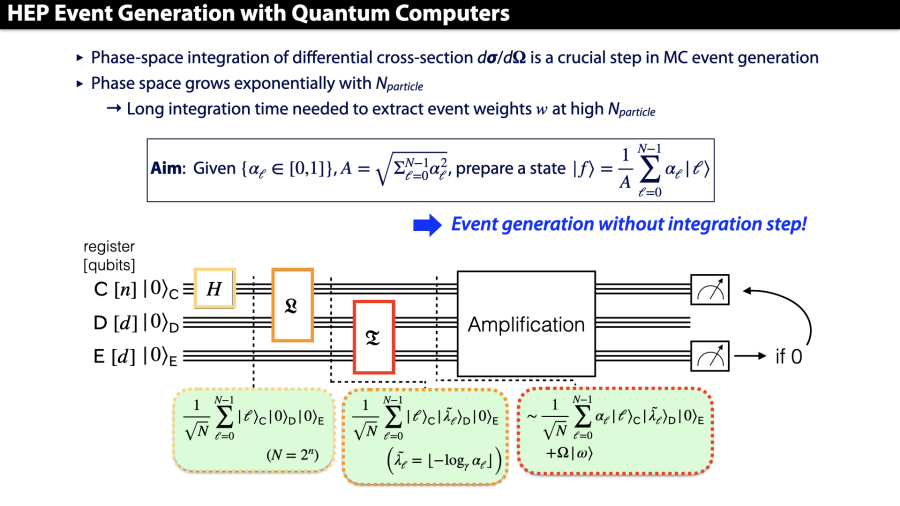Overview
Computations based on random sampling, such as Monte Carlo simulations, are essential in HEP research. Quantum computers naturally encode probability distributions, with the measurement of the overall state of the system corresponding to drawing random samples from the distribution represented by the final state of the system. We therefore investigate the potential advantage of quantum Monte Carlo over the classical counterpart, in particular for HEP event generation.
Research
While the ultimate goal would be to run a particle physics simulation on the quantum computer and then sample from the calculated final state, resource requirement of such a calculation may be prohibitive. An intermediate solution would be to classically compute the (unnormalized) scattering cross sections and encode them into quantum states, which amounts to a conversion of cross sections to a probability distribution without an explicit integration step. To achieve this intermediate goal, we are exploring various methods to encode classical data into a quantum state (state preparation).



 " alt="">
" alt="">